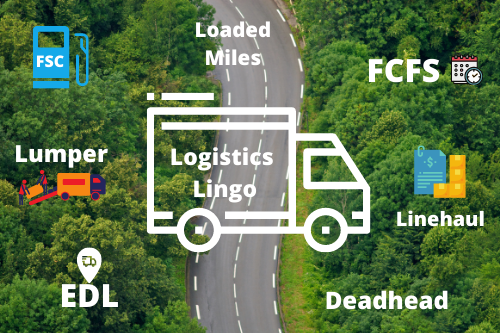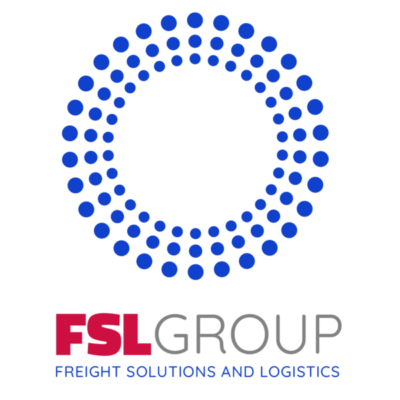Truckload Terminology
If you’ve been in the logistic industry for a while, you’ve probably heard some logistics lingo being tossed around from time to time. We’ve decided to take some of the most common transportation terms and break them down for you in layman’s terms.
Block & Brace – This refers to how cargo is secured inside of a trailer with dunnage, straps, load locks, chains, or bracing to help prevent goods from shifting or incurring damage during transit. Securing freight properly inside of a trailer not only helps you avoid unnecessary claims, but also ensures the safety of the driver while he is on the road.

Deadhead – This is the amount of miles that a carrier drives without a load. They are considered empty miles that a driver must drive on the way to pick-up another load. These miles matter in the rate negotiation process because the carrier may consider the deadhead miles in the total length of the driver’s trip to cover gas and time.
Driver Assist – This is an extra service sometimes performed by drivers when requested by either the shipper or receiver for an additional charge. When the service is requested, the driver may be required to help either load or unload the trailer. Example: The driver may need to use a pallet jack to help move pallets from the nose of the trailer to the tail so the receiver can off-load the freight.
EDL – Electronic Driver Logs are used to automatically record driving hours and hours of service (HOS). Driver’s can legally only drive a certain number of hours within a given time period. EDLs capture data from the vehicle to ensure the driver stays within their legal limits.

FCFS – FCFS is an acronym for First Come First Serve and refers to the hours of warehouse operations. This term is used when an appointment is not required at the shipper/receiver and carriers are able to come in between a window of time. Flexible hours allow drivers to pick-up or deliver without the pressure of making a certain time. Strict appointments can deter carriers from accepting loads. Limiting the carrier pool can also mean paying higher rates since there are less options
Fuel Surcharge (FSC)– Fuel surcharge is a charge that covers the cost of fuel. Fuel prices can be volatile, and FSC ensures that shippers do not over pay when fuel is cheap, or underpay when fuel rates are up.

Line Haul – This is the rate associated with a specific lane, independent of the fuel surcharge, accessorials, or additional fees. It may be quoted per trip or per mile.
Loaded Miles – These are miles it takes a driver to get directly from the shipper to the receiver. These miles do not include deadhead miles. When calculating loaded miles, remember that commercial trucks may not always be able to take the same backroad routes as you could in a car.

Lumper – This is a laborer who unloads cargo, breaks down the pallets to count material, and inspects for damages. This is a third party logistic service that consignees sometimes utilize to streamline their receiving process. This service can be charged to the driver who must make a payment in order to be released. This is normally charged back to the customer who is paying for the freight if it is not included in the freight quoting process.

Multidrop – A shipment that picks up at one location and delivers to more than one receiver. Drivers on multi drop loads will deliver parts of one load to different locations typically in close proximity to each other.
OTR – Over the Road. This is referring to a truck that drives through state roads in order to get from shipper to receiver. Sometimes OTR truck rates are cheaper.
Reefer – This is the term used for refrigerated trailers. These trailers are temperature controlled and used to transport perishables and other temperature-sensitive goods. Refrigeration can also be turned off and the truck can be run completely dry with non-reefer freight.
Team Service – This refers to when two drivers take turns to drive one truck while the other rests, allowing the truck to keep moving on the road twice as fast as a truck with one driver. Team drivers are generally used for time-sensitive shipments. Because the service is faster and requires two drivers instead of one, team service comes at a higher price.
TMS – Transportation Management System/Software; this is a type of computer software designed specifically for transportation professionals and their needs. TMS can help manage almost every aspect of a business’ logistics operations.


